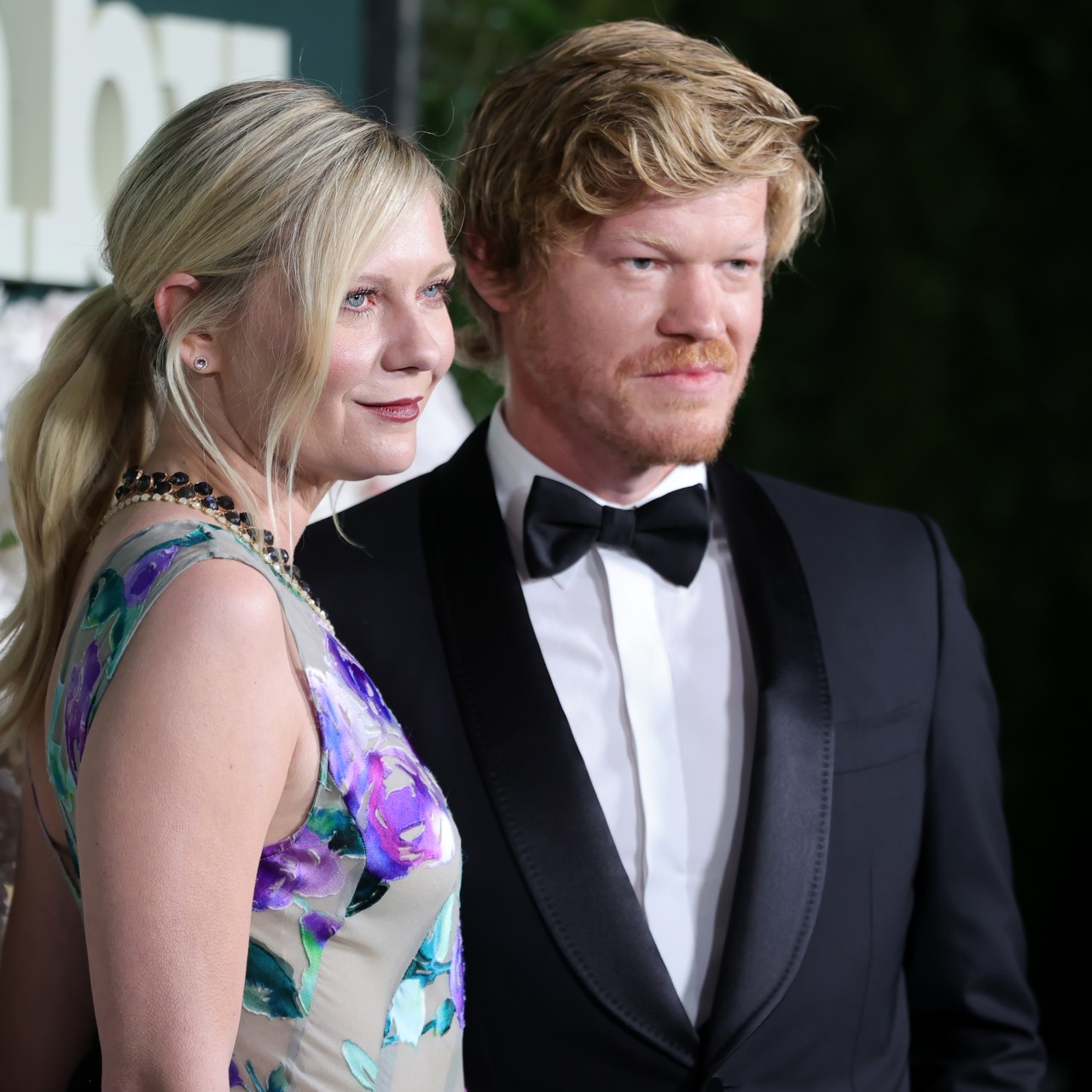Kirsten Dunst: "There's Definitely Less Good Roles for Women My Age"
In an interview with Marie Claire, Dunst explains she's often typecast as "the sad mom."
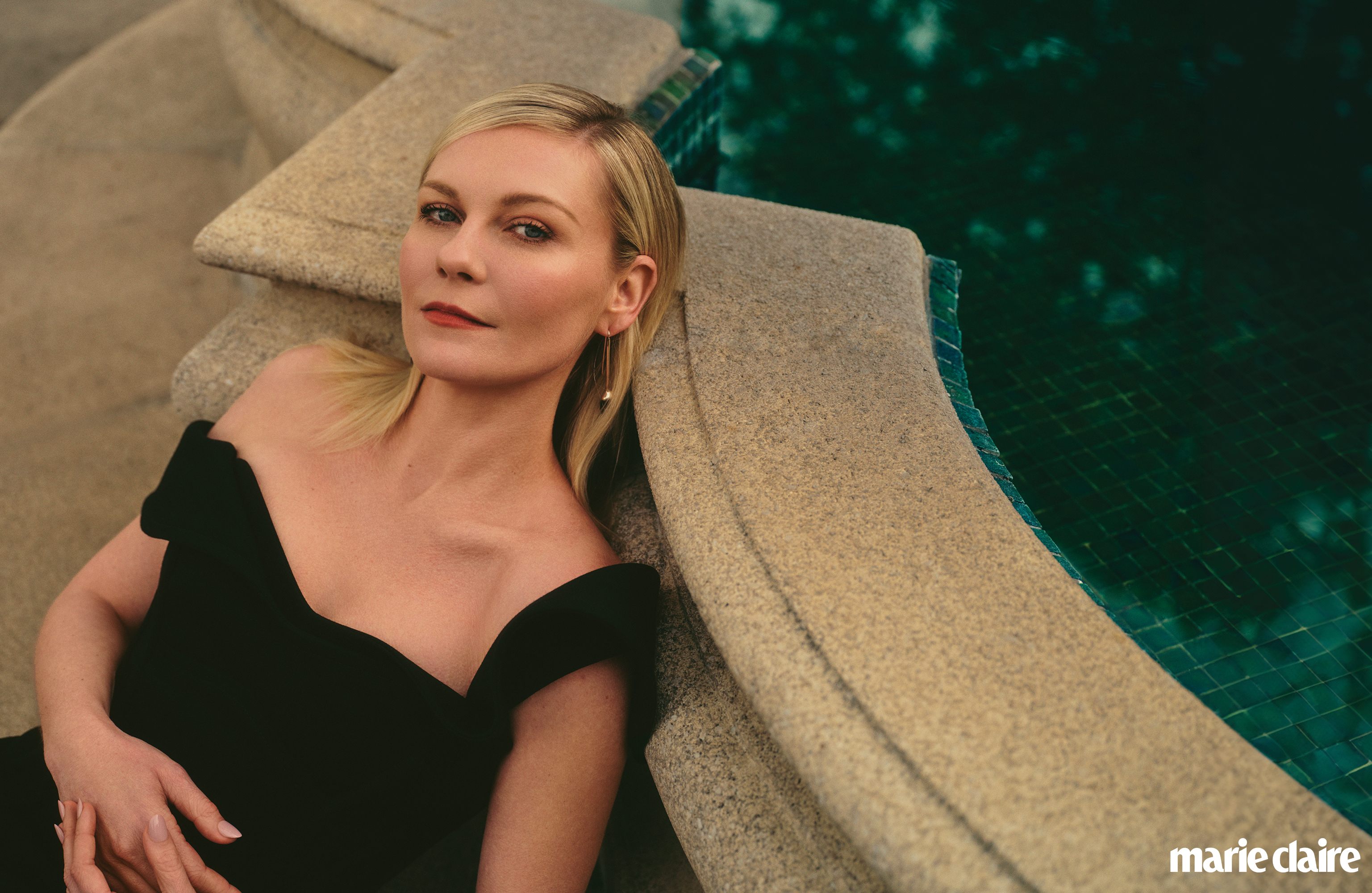
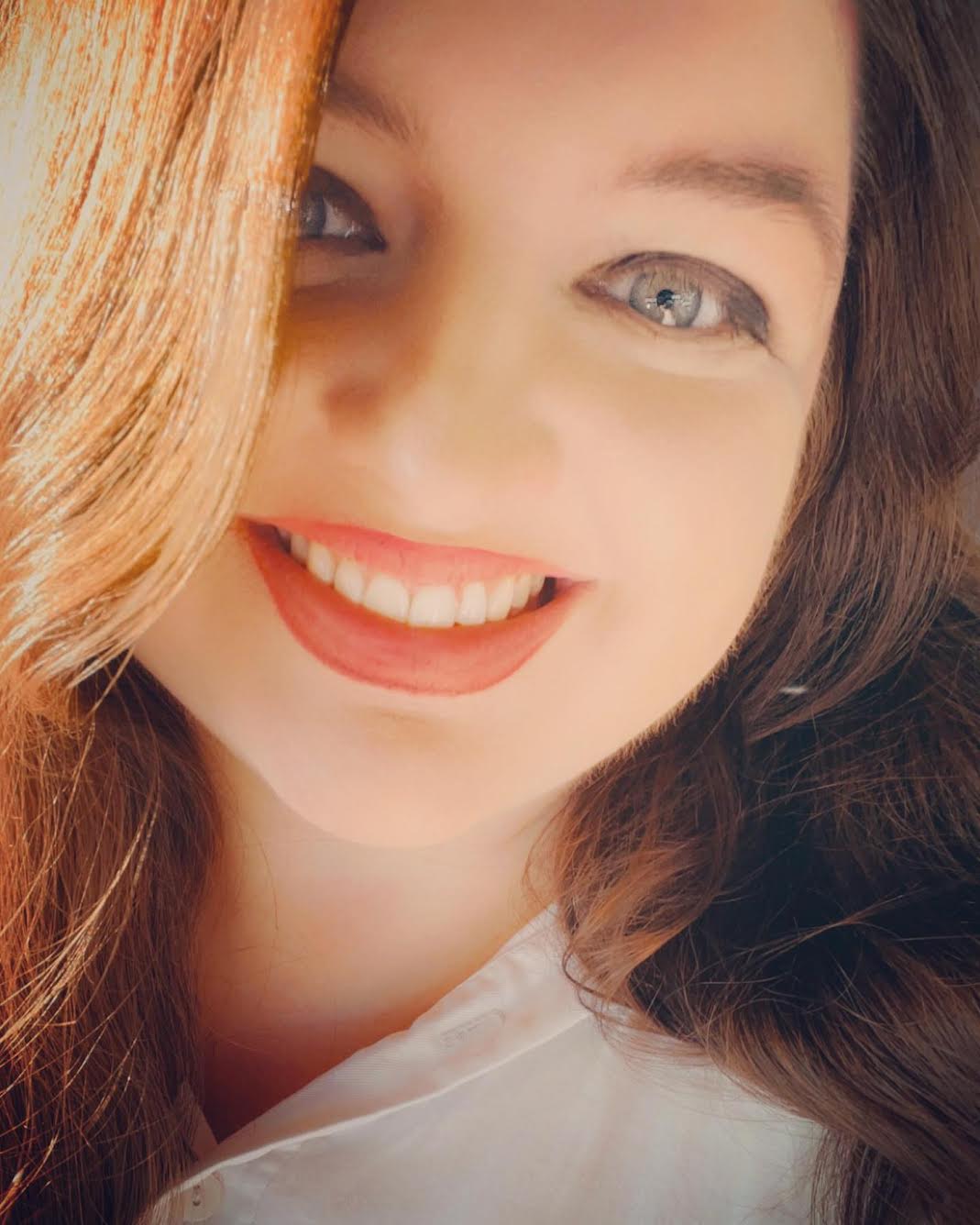
Kirsten Dunst’s cover story for Marie Claire’s 2024 Makers Issue is her first interview in two years—and there’s a reason: it’s because “I haven’t worked in two years,” she said. Following her Academy Award-nominated turn in The Power of the Dog, “every role I was being offered was the sad mom."
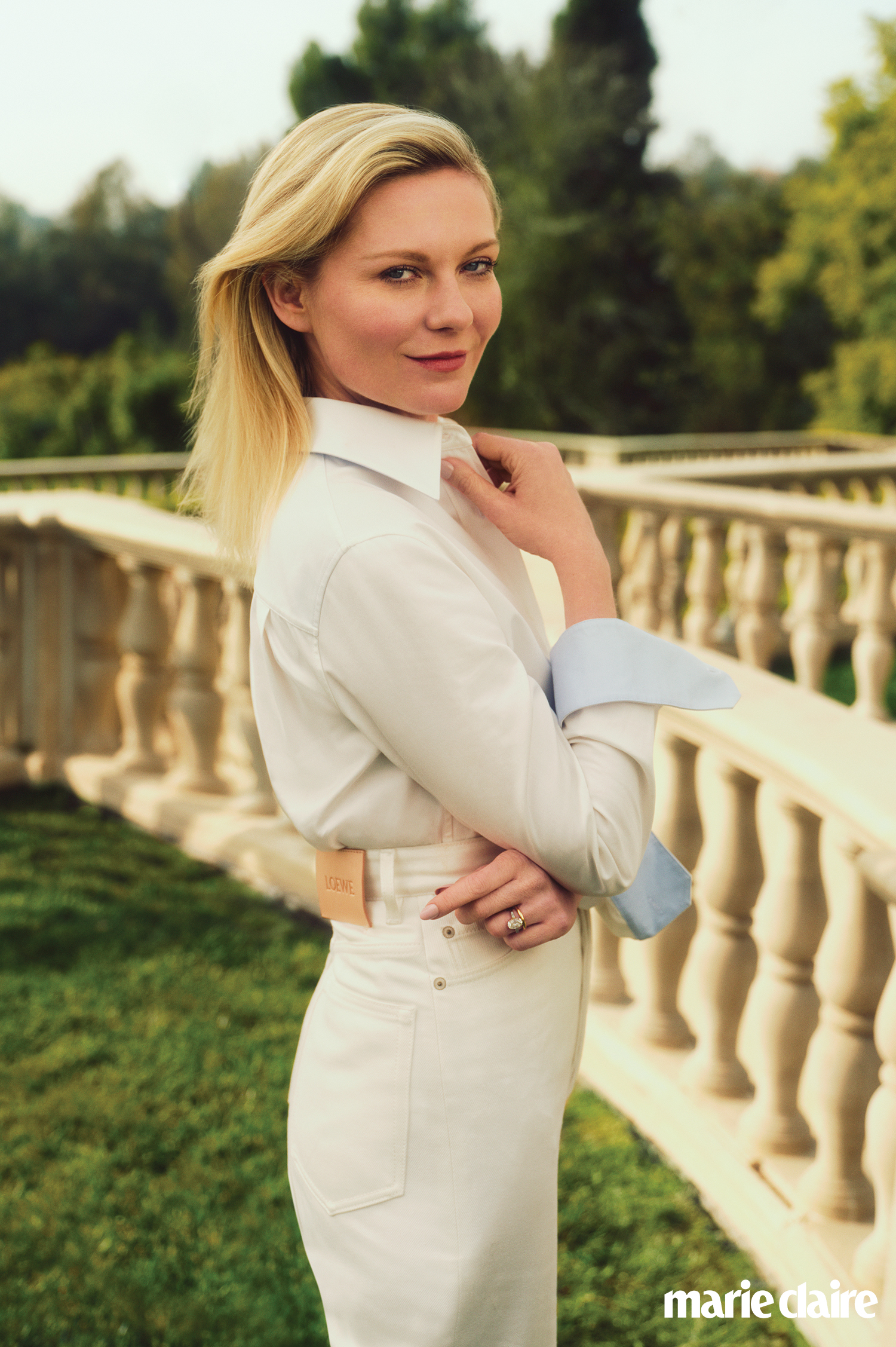
Dunst has worked in Hollywood for three decades and counting.
It is, unfortunately, a Hollywood problem not limited to Dunst. Fellow actress Amanda Seyfried—who, like Dunst, is a mother, and, at 38, is actually three years younger than Dunst—said recently that “Once I popped out a baby, I was just playing mothers, and that’s Hollywood for you.” This has happened to Dunst too, who, since becoming a mom herself and turning 40, has dealt with being typecast.
In The Power of the Dog, Dunst played a mother and wife of a ranch owner, played by her real-life husband Jesse Plemons. It was ironic to, as Marie Claire writer Michelle Ruiz puts it, “be typecast in a variation of the role she’s playing in real life—though, to be clear, Dunst is currently a tired mom, not a sad one.” Dunst had actively defied being typecast throughout the entirety of her three decades onscreen up until this point; she found it "demoralizing to see her options of characters narrow, to experience firsthand Hollywood’s very gender-specific ageism," Ruiz writes.
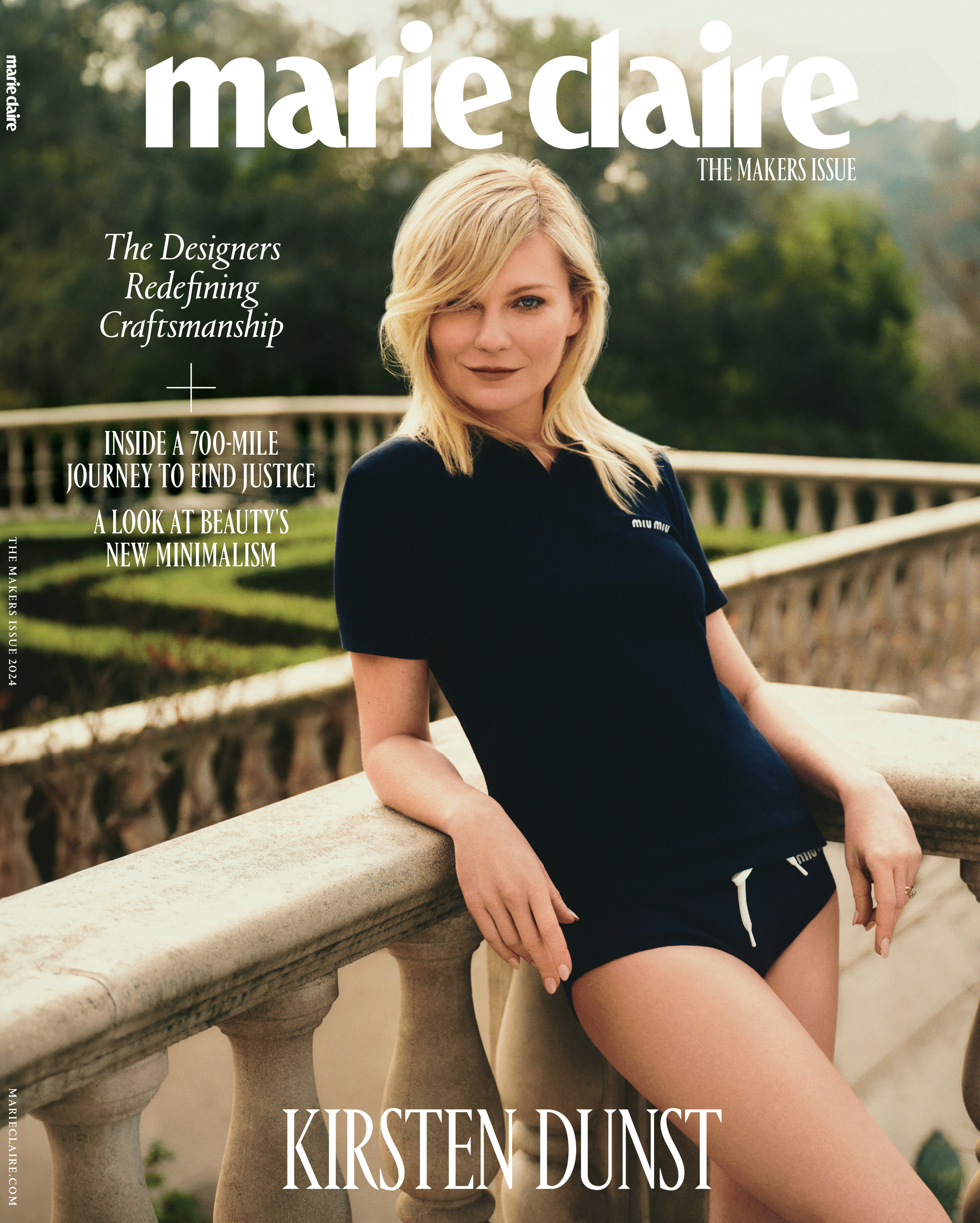
Dunst covers 'Marie Claire's 2024 Makers Issue. Get the magazine.
“To be honest, that’s been hard for me…because I need to feed myself,” she told Marie Claire. “The hardest thing is being a mom and…not feeling like, I have nothing for myself. That’s every mother—not just me.” She added, matter-of-factly, “There’s definitely less good roles for women my age.”
In her new film, Civil War, Dunst returns to the big screen in an unexpected way. Instead of surrendering to “sad motherhood,” Dunst pivoted to what she called “elevated action” in the movie, in which she plays photojournalist Lee Smith, who regularly risks her life covering a war zone. “When I read the script, I thought, ‘I’ve never done anything like this,’” Dunst said. She committed herself to fiercely to the role that she “had PTSD for a good two weeks after,” she said. “I remember coming home and eating lunch and I felt really empty.”
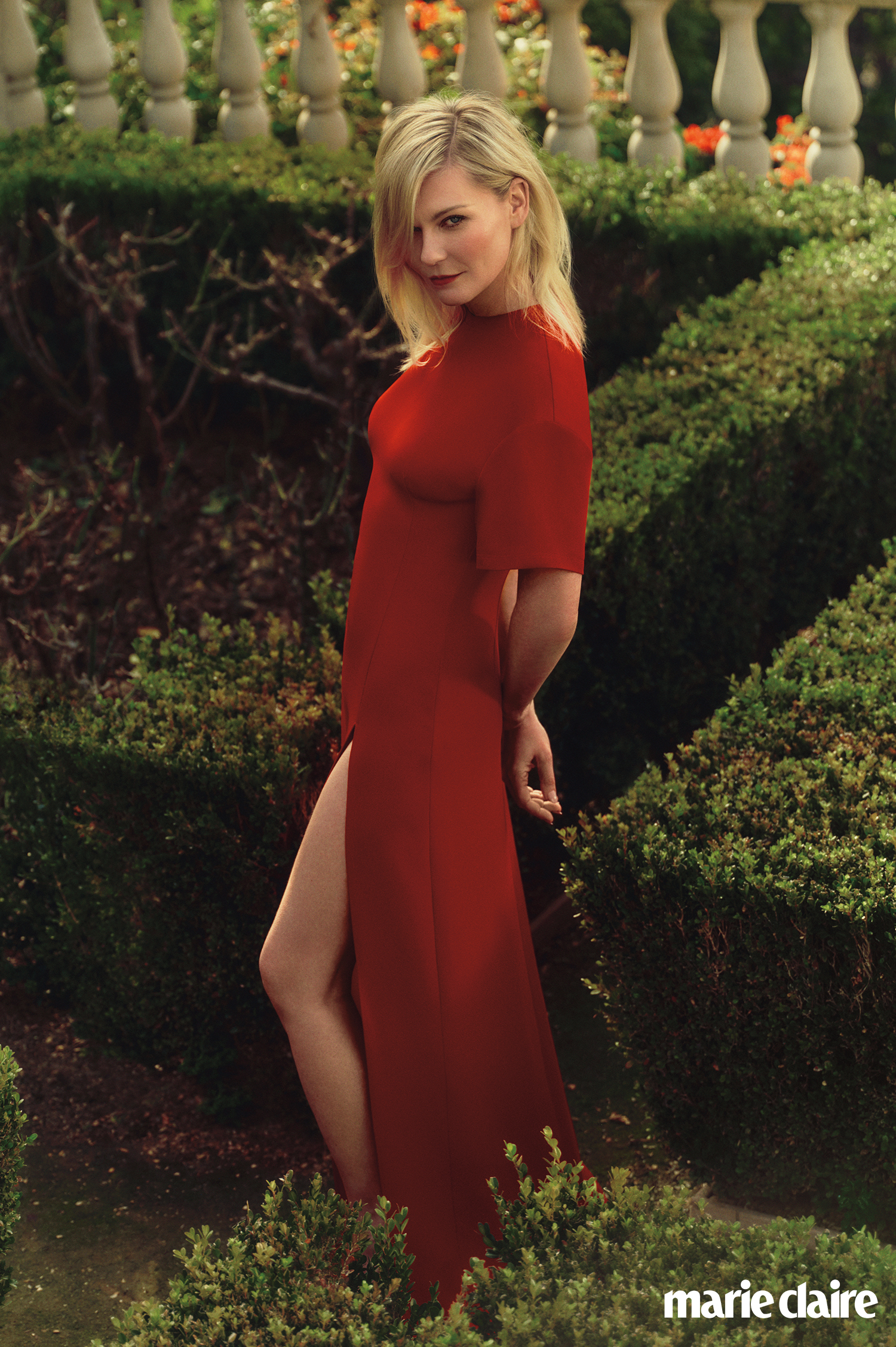
Following her role in 2021's 'The Power of the Dog,' Dunst said she was typecast as the "sad mom."
Dunst is a so-called “child star” who emerged from that label largely unscathed; before the aforementioned “sad mom” typecasting, “Dunst genre-hopped with the kind of freedom typically reserved for men in Hollywood,” Ruiz writes. Of her choices in the aughts as a twentysomething, “I always just navigated with my heart,” she said. But, still, sexism reared its ugly head, as it tends to do in Hollywood.
“It was a joke, but on Spider-Man, they would call me ‘girly-girl’ sometimes on the walkie-talkie,” Dunst said. “‘We need girly-girl,’” she imitated. “But I never said anything.” Today, she is fired up at the memory—“like, don’t call me that,” she said—and, in reminiscing on a pre-MeToo Hollywood, “You didn’t say anything,” Dunst added. “You just took it.”
Stay In The Know
Get exclusive access to fashion and beauty trends, hot-off-the-press celebrity news, and more.
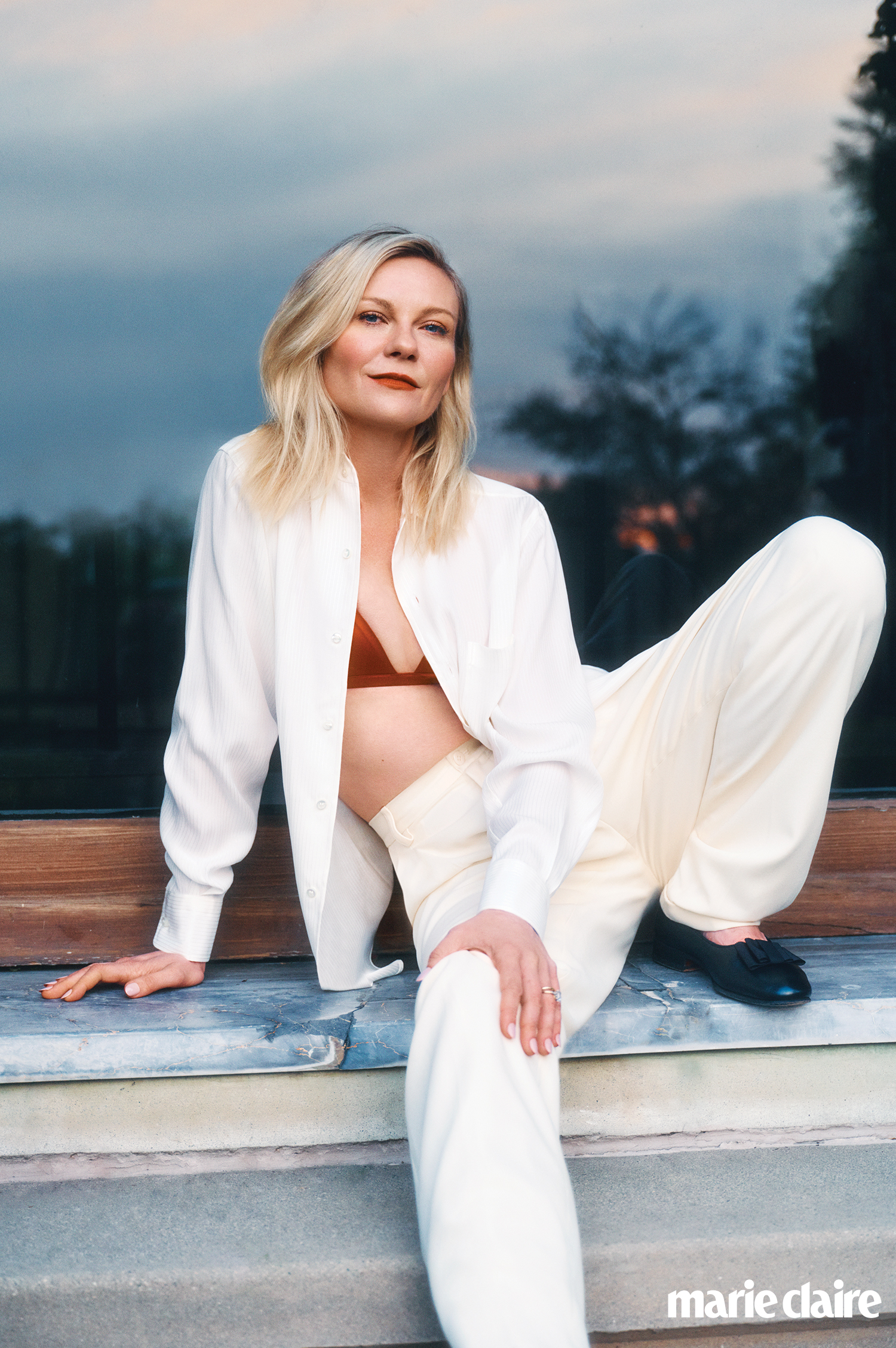
Dunst next appears in the film "Civil War," out April 12.
Dunst gravitated toward female directors, like Gillian Armstrong, Sofia Coppola (who directed Dunst in three films), Leslye Headland, and, later, Jane Campion, who directed her in The Power of the Dog, for which Dunst was nominated for a Best Supporting Actress Oscar. “I saw the power in women very young,” she said. “I think that’s helped with…not needing male attention in my career.”
The decision to work with female directors was partially strategic; long before the “sad mom” typecasting, Dunst was cognizant of not getting typecast by male directors and “get hired because I’m someone that they might want to sleep with,” she said. “I think that’s probably why I migrated to so many female directors at a younger age, because I didn’t want to feel that way.”
Now 41, Dunst said, while laughing, that “no one cares” about her looks. It’s more of the age-old Hollywood ageism—take, for example, Maggie Gyllenhaal, who as a 30-something actress was deemed too old to play a 55-year-old man’s girlfriend. “I’ve been offered a lot of roles like that,” Dunst said, wincing. “Honestly, it’s slightly offensive.”
She’s determined to “gracefully grow older in an industry that makes it feel impossible,” Ruiz writes. Dunst herself said, “I feel insecure like a normal woman, but I also have a good head on my shoulders.”
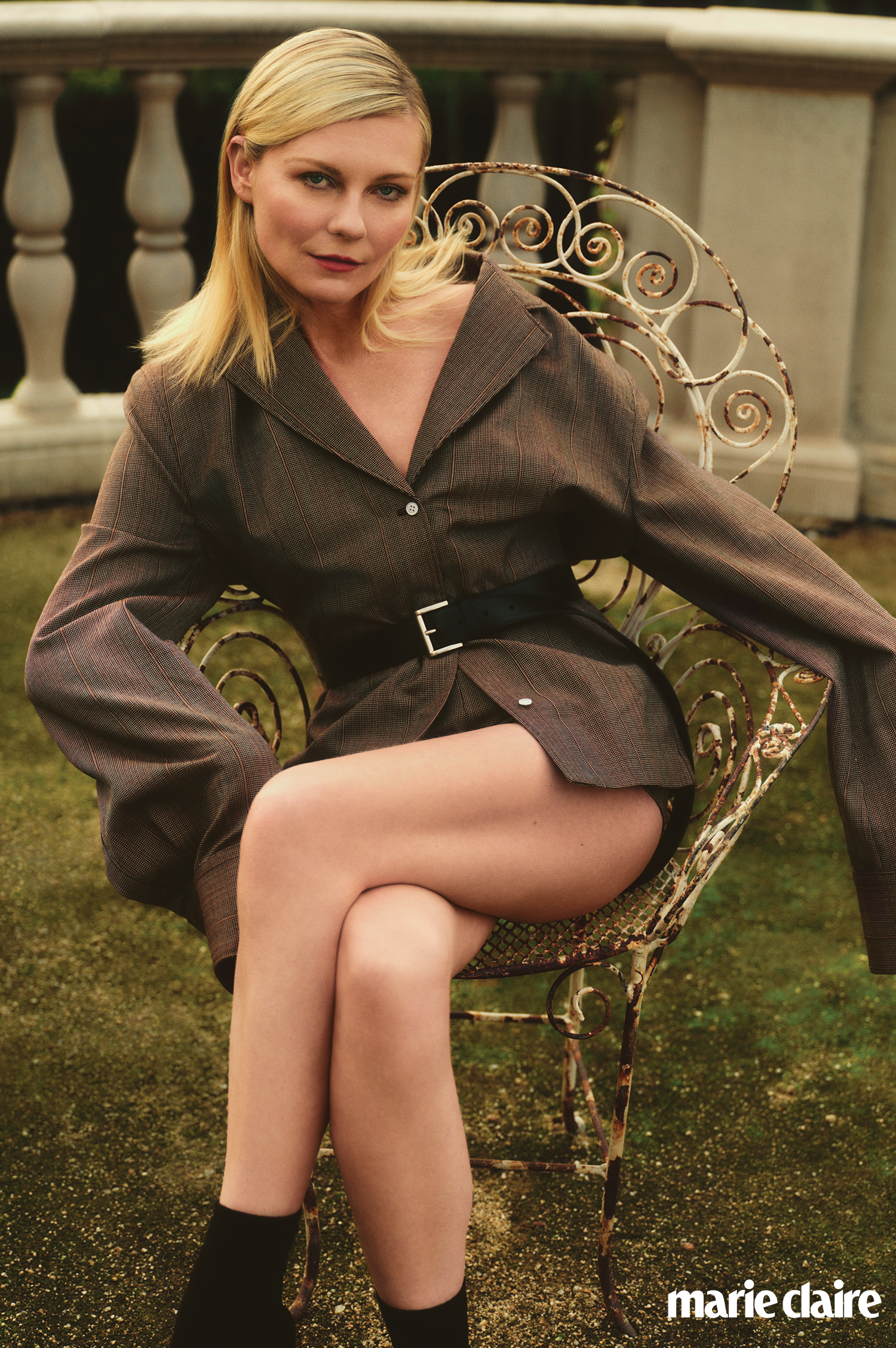
Dunst strategically chose to work with mostly female directors throughout her career.
Of being almost criminally overlooked for awards—specifically when it comes to the Oscars—“I think it’s good to be an underdog,” Dunst said. She predicted she just may get her long-awaited Academy Award someday, maybe even in the form of a lifetime achievement award. “I’ll be old,” she said. “And they’ll be like, ‘Let’s finally give her one.’”

Rachel Burchfield is a writer, editor, and podcaster whose primary interests are fashion and beauty, society and culture, and, most especially, the British Royal Family and other royal families around the world. She serves as Marie Claire’s Senior Celebrity and Royals Editor and has also contributed to publications like Allure, Cosmopolitan, Elle, Glamour, Harper’s Bazaar, InStyle, People, Vanity Fair, Vogue, and W, among others. Before taking on her current role with Marie Claire, Rachel served as its Weekend Editor and later Royals Editor. She is the cohost of Podcast Royal, a show that was named a top five royal podcast by The New York Times. A voracious reader and lover of books, Rachel also hosts I’d Rather Be Reading, which spotlights the best current nonfiction books hitting the market and interviews the authors of them. Rachel frequently appears as a media commentator, and she or her work has appeared on outlets like NBC’s Today Show, ABC’s Good Morning America, CNN, and more.
-
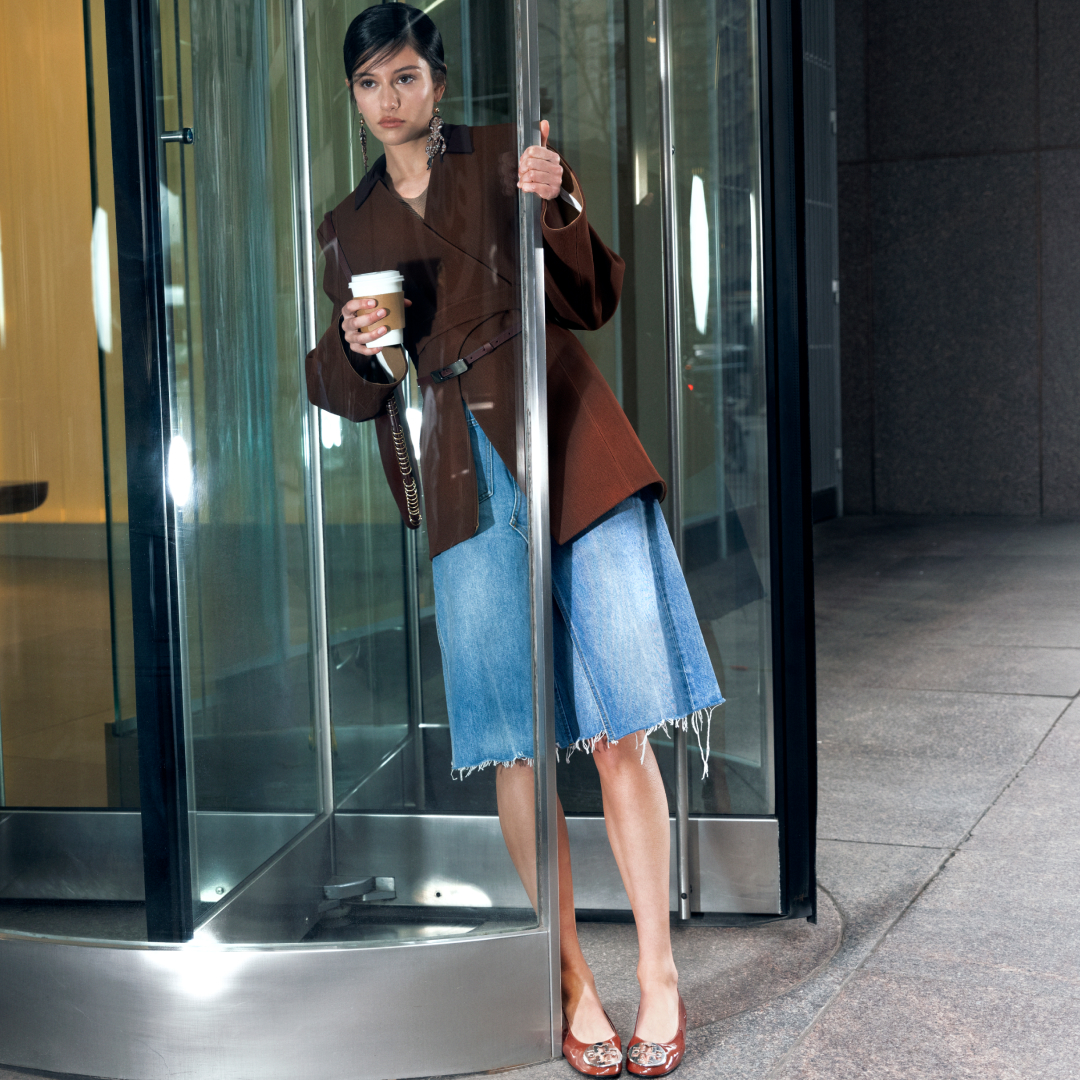 Welcome Back, Early-2000s Tory Burch Ballet Flats
Welcome Back, Early-2000s Tory Burch Ballet FlatsThe medallion-topped shoes are back, but not how you remember them.
By Halie LeSavage
-
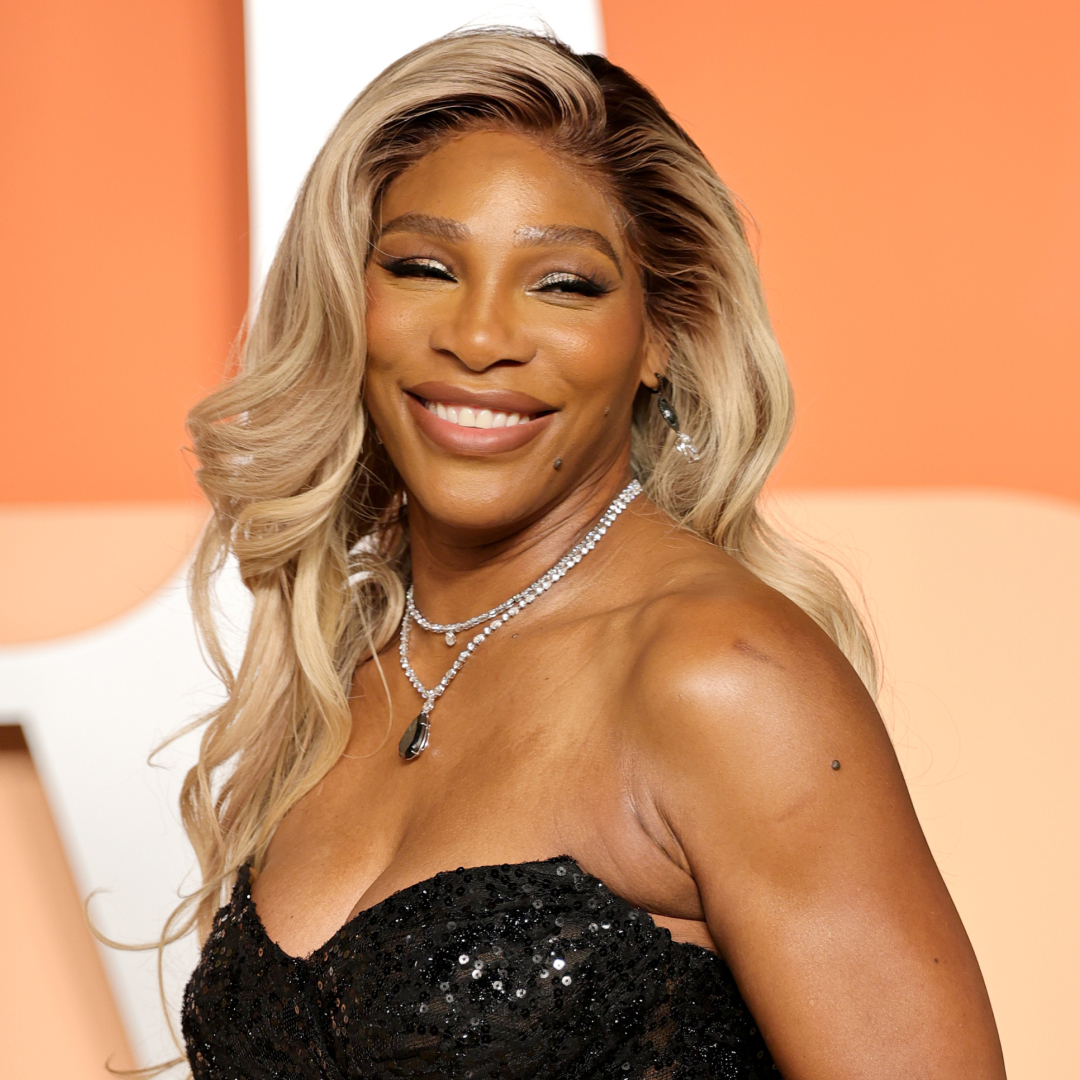 Serena Williams Avoided Taylor Swift at the Super Bowl for One Important Reason
Serena Williams Avoided Taylor Swift at the Super Bowl for One Important ReasonSorry, Olympia. You'll have to get that autograph next time.
By Lia Beck
-
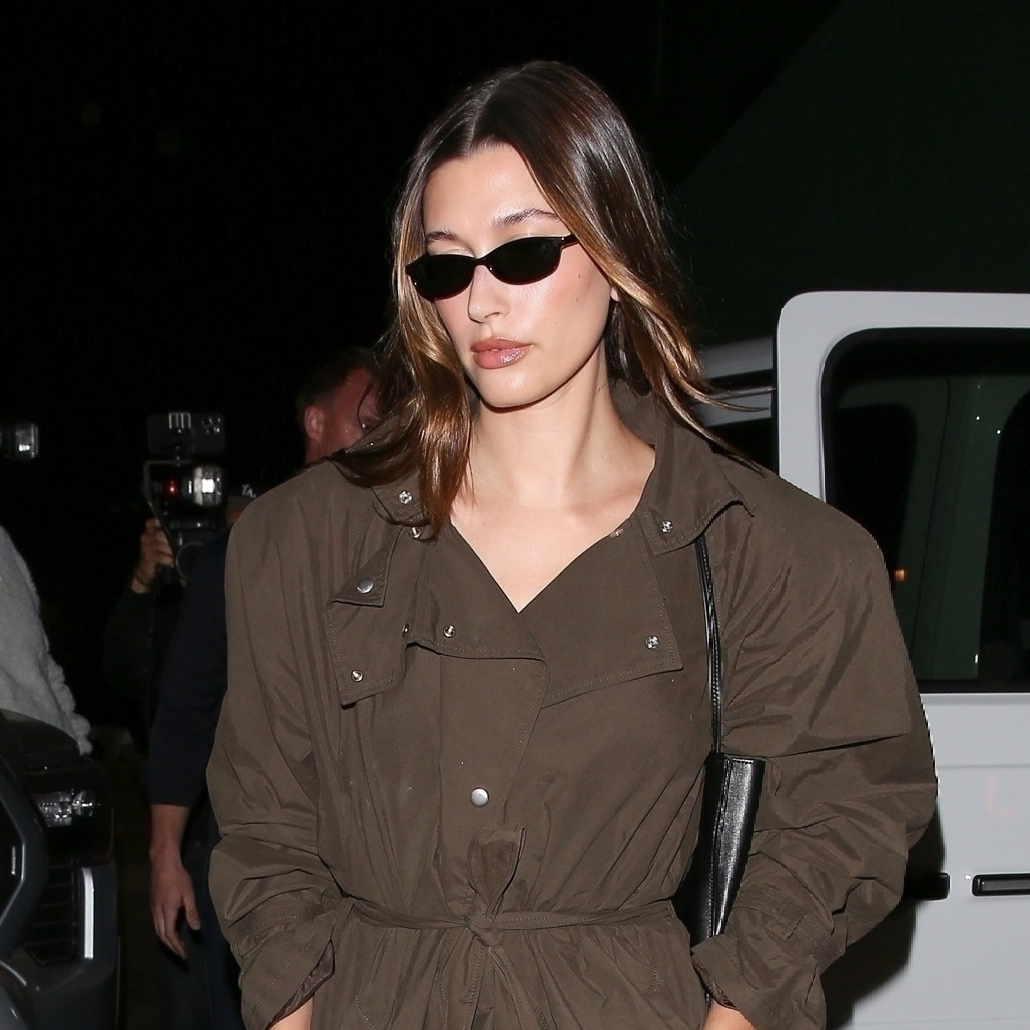 Hailey Bieber Styles a Bubble-Hem Trench as a Mini Dress
Hailey Bieber Styles a Bubble-Hem Trench as a Mini DressShe's a styling genius.
By Kelsey Stiegman
